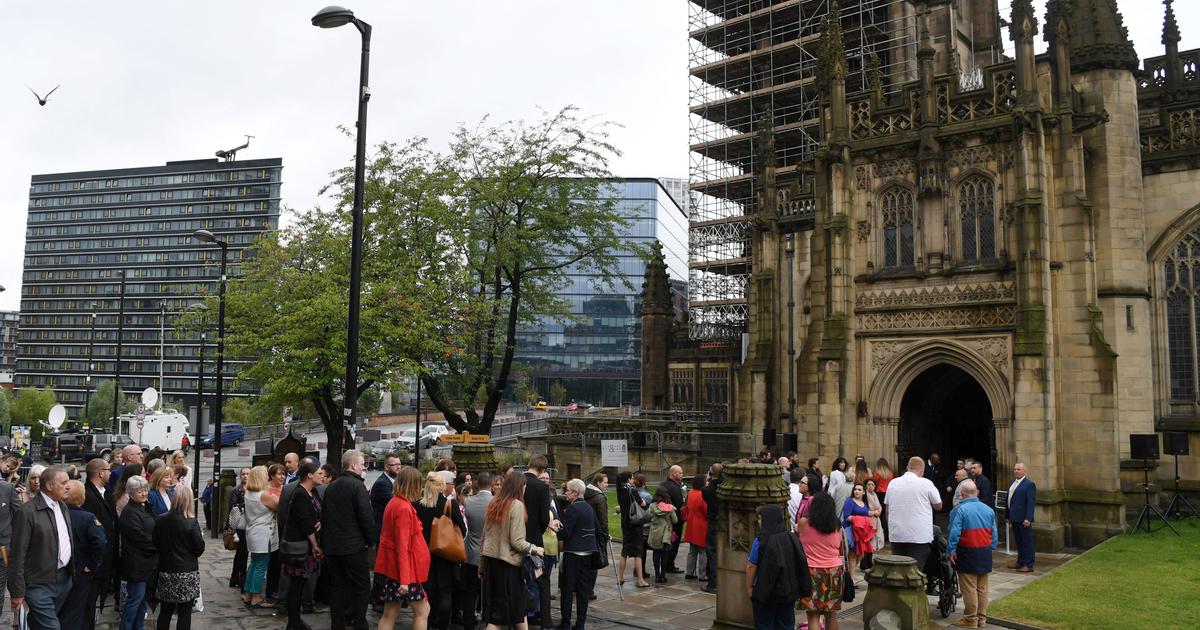For the first time, less than half of the population in England and Wales declare themselves Christian, according to new results from the 2021 census published on Tuesday November 29, which paint a portrait of a more diverse and secular population.
The proportion of the population that describes itself as Christian drops to 46.2% (27.5 million people), down 13.1 points from 2011, according to the Office for National Statistics (ONS).
“
No religion
” comes in second place (37.2%, up 12 points), while 6.5% (3.9 million people) describe themselves as Muslim compared to 4.9% in 2011, and 1 .7% Hindus against 1.5% 10 years ago.
Unsurprisingly, Archbishop of York Stephen Cottrell, one of the two spiritual leaders of the Anglican Church, observes that "
the era when many people automatically identified themselves as Christians is behind us, but others studies show that the same people seek spiritual truth and wisdom and values to follow in their lives
.”
Read alsoUnited Kingdom: Kwasi Kwarteng, pure product of the conservative diversity policy who became Chancellor of the Exchequer
This decline is explained by demographic factors, detailed during a briefing of the Religion Media Center Professor Linda Woodhead of King's College London, "
people are dying
".
But also by the lack of transmission of Christianity between generations, she said according to
The Guardian
, transmission which occurs "
more effectively in Islam and Hinduism
".
The group Humanists UK, which campaigns for the rights of non-religious people, believes that the government should learn lessons from this census, particularly in the field of education: a third of public schools are Christian and 16 % have selection policies based on religion.
'
The UK is almost certainly one of the least religious countries on earth
', says its chief executive Andrew Copson, yet '
no other state in Europe
' sees religion as present in legislation and policies public.
“
Iran is the only other state in the world whose clerics vote
” the laws, he denounced, in reference to the clerics who sit in the House of Lords.
English, Romanian or Punjabi
Answering the question of religion is done on a voluntary basis, 94% of the population made this choice against nearly 93% during the last census ten years ago.
Scotland and Northern Ireland, the other two nations that make up the United Kingdom, conduct their censuses separately.
"
Obviously the UK is a diverse country, that's something to be welcomed
," "
this includes diversity of religion
," said Prime Minister Rishi Sunak's spokesman.
Coincidentally, Rishi Sunak, the first head of the British government of Hindu religion and Indian origin, receives on Tuesday in Downing Street the chaplain of the Archbishop of Canterbury, Tosin Oladipo, and other guests of the Christian community for Advent - the period before Christmas.
Read alsoIn London, students want to reduce the teaching of “white philosophers”
The other parts of the census published on Tuesday reflect a diversification of the population, which identifies itself overwhelmingly as white (81.7% in 2021, against 86% in 2011).
Within this group, 74.4% identify as English, Welsh, Scottish, Northern Irish or British, declining steadily since 2011 (80.5%) and 2001 (87.5%).
The second ethnic group includes Asians - a term which in the United Kingdom primarily designates populations originating from the Indian subcontinent -, British Asians or Welsh Asians, who represent 9.3% of the population and have experienced the highest increase. significant (compared to 7.5% in 2011).
In order of numerical importance, this group is made up of people of Indian, Pakistani, “
other Asian
”, Bangladeshi and Chinese origins.
The “
black, black British, black Welsh, Caribbean or African
” populations stand at 4%, up from 3.3% ten years ago.
10.1% of households have members who identify as belonging to two or more different ethnic groups.
Questions on ethnic groups were introduced in the census in 1991.
As for languages, 91.1% of usual residents aged three and over in 2021 spoke mainly English – English or Welsh in Wales – compared to 92.3% ten years ago.
The other most common major languages are Polish, Romanian, Punjabi, and Urdu.









